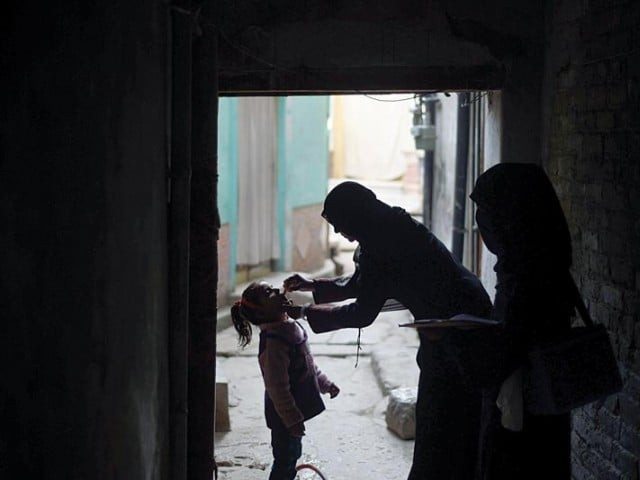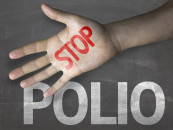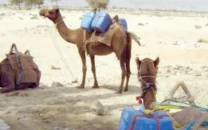Combating disease: Religious leaders vow to help in anti-polio drive
Scholars at a conference in Quetta say refusing immunisation is against Islam

Scholars at a conference in Quetta say refusing immunisation is against Islam. PHOTO: AFP
At a conference held under the auspices of the Emergency Operation Centre (EOC) Balochistan, religious leaders, including Maulana Anwarul Haq Haqani, Dr Athaur Rehman, Maulana Abdul Raheem Raheemi, Qari Mateen, Malvi Azizullah, Qari Abdul Rahsid and prayer leaders of mosques in high polio risk union councils gave their assurances to the ECO of their support and said that parents refusing immunization on religious grounds were unaware of religious teachings.
Read: LHWs threaten to quit anti-polio drive
Addressing the gathering, Dr Syed Saifur Rehman, who heads the Centre for Polio Eradication in the province, said religious leaders have to play their role in raising awareness among the masses regarding the crippling disease. “People follow clerics; it is high time religious leaders fulfilled their social responsibility as the future of our children is at stake,” he added. “Refusal by parents is the main hurdle in eradicating poliovirus from Balochistan.”
Dr Rehman said many parents refuse to get their children vaccinated during campaigns on religious grounds by citing long-running rumours about the vaccine causing infertility.
Read: Bad management: Anti-polio programme faces $22m cash shortfall
Meanwhile, religious leaders attending the conference agreed that denying anti-polio vaccine to children was “against the teachings of Islam” and agreed to launch an awareness campaign during prayers and Friday sermons.
Published in The Express Tribune, July 6th, 2015.



















COMMENTS
Comments are moderated and generally will be posted if they are on-topic and not abusive.
For more information, please see our Comments FAQ